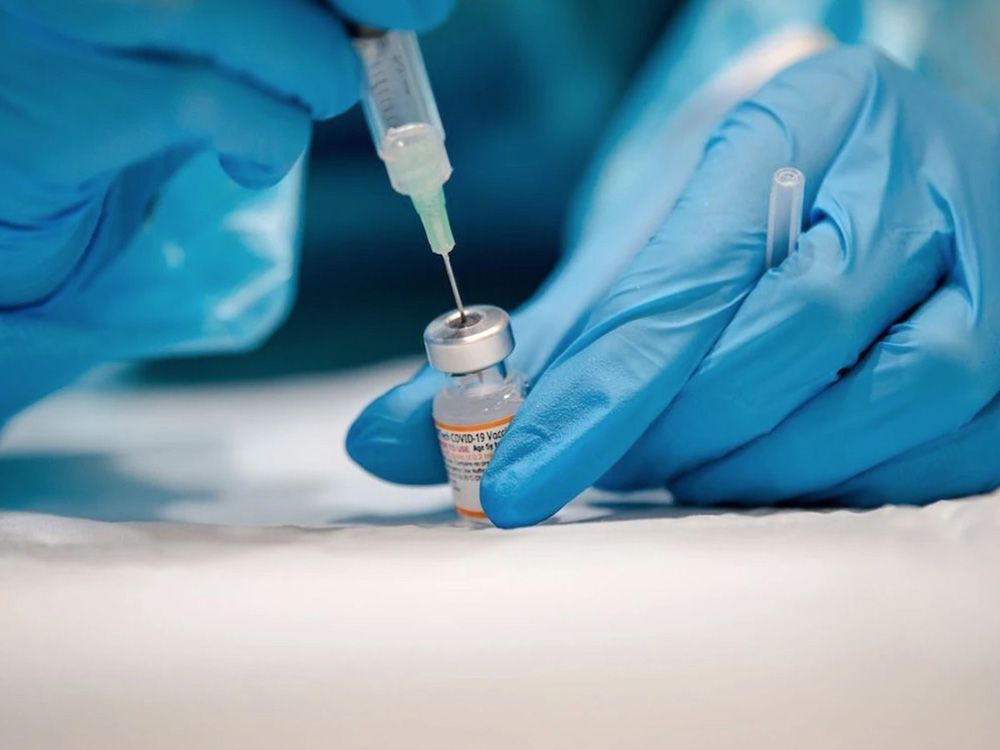I just had the Pfizer bivalent yesterday, I hope they have better studies.
The new bivalent COVID-19 vaccines may not be more effective than the old shots at neutralizing Omicron, two new studies suggest.
The much talked-up new bivalent COVID-19 vaccine boosters may not be all that superior to the old shots at neutralizing Omicron, two new studies suggest.
Both studies are small, together involving just 73 people in total who were followed for about a month. Both are pre-prints that haven’t yet been peer-reviewed. However, their authors say their findings hint at a phenomenon known as “immunological imprinting” — the immune system’s habit of locking onto, and responding to, the first version of the virus it encountered, either by vaccination or infection.
The first study comes from Columbia University and University of Michigan researchers who compared Pfizer’s and Moderna’s bivalent boosters that target both the original ancestral SARS-CoV-2 strain, as well as Omicron’s BA.4/BA.5 subvariants, against their original vaccine formulations.
After three to five weeks, post booster shot, there were no “discernibly superior” differences between the level of virus-neutralizing antibodies in the blood of people who received the revamped vaccine as their fourth shot, compared with those who received a boost with the original vaccine.
“To disappointment, the bivalent vaccine did not show superiority over the original vaccine,” co-author David D. Ho, a professor of microbiology and immunology at Columbia, told NPR.
A team from Beth Israel Deaconess Medical Center in Boston came up with similar findings. That group looked at the responses in 15 people who received the original mRNA boosters and 18 who received the tweaked, bivalent boosters. People had had two to four prior COVID-19 vaccine doses, and a third of participants had a confirmed COVID infection during the Omicron surge.
Both boosters increased antibody responses, but with only a “modest and non-significant trend” favouring the bivalent shot.
“Our findings suggest that immune imprinting by prior antigenic exposure may pose a greater challenge” than currently appreciated, the authors wrote.
A spokesperson for Pfizer Canada said the company doesn’t typically comment on pre-print studies that they weren’t involved in. Pfizer recently shared, via press release, data that found people who received its bivalent shot showed a “substantial increase” in neutralizing antibodies against Omicron BA.4 and BA.5 in the first seven days, post booster dose.
Pfizer told National Post Thursday that it will have additional data in coming weeks.

 nationalpost.com
nationalpost.com
The new bivalent COVID-19 vaccines may not be more effective than the old shots at neutralizing Omicron, two new studies suggest.
The much talked-up new bivalent COVID-19 vaccine boosters may not be all that superior to the old shots at neutralizing Omicron, two new studies suggest.
Both studies are small, together involving just 73 people in total who were followed for about a month. Both are pre-prints that haven’t yet been peer-reviewed. However, their authors say their findings hint at a phenomenon known as “immunological imprinting” — the immune system’s habit of locking onto, and responding to, the first version of the virus it encountered, either by vaccination or infection.
The first study comes from Columbia University and University of Michigan researchers who compared Pfizer’s and Moderna’s bivalent boosters that target both the original ancestral SARS-CoV-2 strain, as well as Omicron’s BA.4/BA.5 subvariants, against their original vaccine formulations.
After three to five weeks, post booster shot, there were no “discernibly superior” differences between the level of virus-neutralizing antibodies in the blood of people who received the revamped vaccine as their fourth shot, compared with those who received a boost with the original vaccine.
“To disappointment, the bivalent vaccine did not show superiority over the original vaccine,” co-author David D. Ho, a professor of microbiology and immunology at Columbia, told NPR.
A team from Beth Israel Deaconess Medical Center in Boston came up with similar findings. That group looked at the responses in 15 people who received the original mRNA boosters and 18 who received the tweaked, bivalent boosters. People had had two to four prior COVID-19 vaccine doses, and a third of participants had a confirmed COVID infection during the Omicron surge.
Both boosters increased antibody responses, but with only a “modest and non-significant trend” favouring the bivalent shot.
“Our findings suggest that immune imprinting by prior antigenic exposure may pose a greater challenge” than currently appreciated, the authors wrote.
A spokesperson for Pfizer Canada said the company doesn’t typically comment on pre-print studies that they weren’t involved in. Pfizer recently shared, via press release, data that found people who received its bivalent shot showed a “substantial increase” in neutralizing antibodies against Omicron BA.4 and BA.5 in the first seven days, post booster dose.
Pfizer told National Post Thursday that it will have additional data in coming weeks.

Are the new COVID boosters really better? Here's what early research says
The new bivalent COVID-19 vaccines may not be better than the old shots at neutralizing Omicron, two new studies suggest. Learn more






